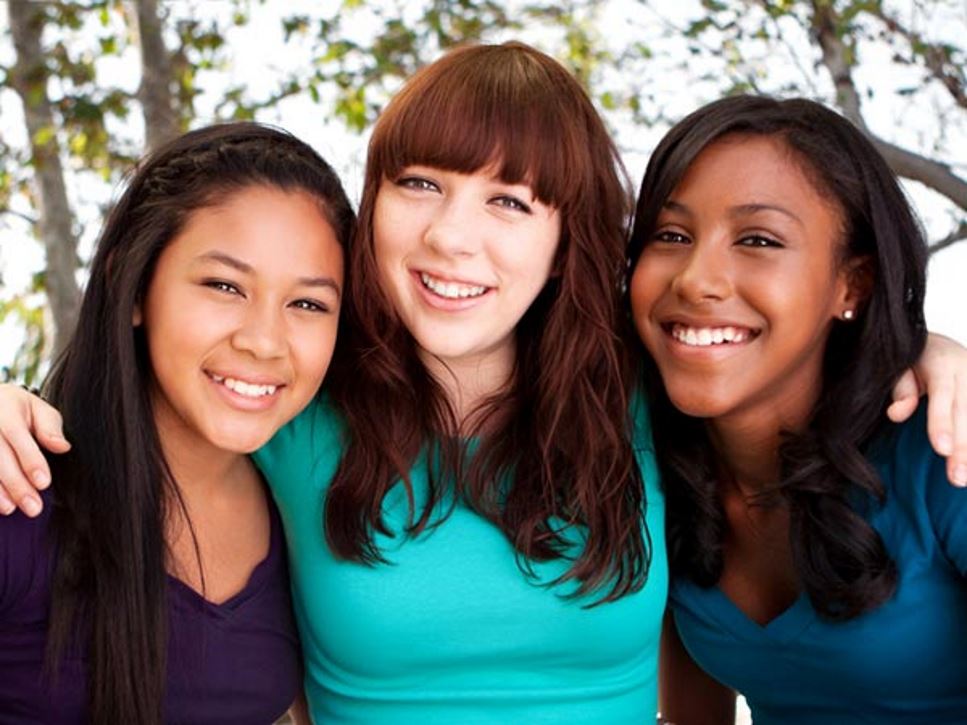It's not uncommon for teenagers and adults to look in the mirror and wish they looked different from the reflection staring back at them. Models, actors, sports stars and other people who are praised for the way they look — and are used as a standard of success — can have a powerful influence on how we view ourselves. However, the media is only one source that contributes to how we view ourselves. Teasing, bullying or criticizing someone’s appearance can cause a negative body image, too.
For some people, these unrealistic goals can lead to an unhealthy body image and low self-esteem, as well as disordered eating behaviors. This may involve eating too little, eating too much or following a very strict diet of only "healthy" foods. Although these factors can undermine body image, there are ways to cultivate a healthier, more positive relationship with your body and with food.
Messaging Matters
Consider your attitudes and beliefs surrounding food, weight, health, physical activity and body satisfaction. How often are you critical of yourself in these areas?
Parents and those who work with adolescents and teenagers influence how kids view themselves. You can be a positive role model by not making judgments about your body or others'. Resist the urge to comment on physical appearances and recognize others for attributes that have nothing to do with how they look.
Social media also can be an influence. Focus on engaging with people in real life rather than spending hours on your phone or computer. Unrealistic body ideals on social media may exacerbate negative body image. Parents may need to monitor the accounts children follow to ensure they are conducive to a positive relationship with food, physical activity and body image.
Balanced Eating Style
A balanced eating style is essential to overcoming negative body image issues. Embracing a variety of foods is key. A healthy eating plan includes:
- Fruits
- Vegetables
- Whole grains
- Nuts and seeds
- Protein foods like meat, fish, tofu, beans and lentils
- Heart healthy fats like vegetable oils, avocados and fatty fish
- Fat-free or low-fat milk, yogurt and cheese, or calcium-fortified soy versions
Although the foods above should make up the majority of what we eat throughout the day, there also is room for salty and sweet foods such as chips, chocolate and ice cream. Avoid labeling foods as "good" or "bad" or cutting out entire food groups.
A vegetarian eating style can be a healthy choice as long as it is well planned and includes a variety of foods from all of the food groups including whole grains, fruits, vegetables, beans, nuts, seeds and fat-free or low-fat dairy or fortified soy versions.
Physical Activity
For many people, physical activity helps boost self-esteem and alleviates stress. But, when being active becomes obsessive, occurring at inappropriate times, or interfering with other important activities, it becomes unhealthy. If you feel guilty, depressed or anxious if you miss a workout, it may be time to seek help.
For most healthy people, a minimum of 30 minutes of moderate-intensity physical activity (such as walking, jogging, biking or dancing) most days of the week is recommended. Resistance training is also recommended at least twice a week. This helps keep muscles and bones strong. Resistance training includes free weights, wrist and ankle weights and rubber resistance bands. Body weight exercises such as squats and push-ups are great weight-bearing activities as well.
Getting Help
Since food and body image are closely linked, having a healthy body image may require the help of a registered dietitian nutritionist and a psychologist or other health care professionals. The overall goal of any treatment is to accept your body and learn how to balance food and emotions. When used the right way, food is a source of pleasure, nourishment and self-love.
References
Find a Nutrition Expert
Looking for credible nutrition information and recommendations? The Academy of Nutrition and Dietetics' network of credentialed food and nutrition practitioners are ready to help!

